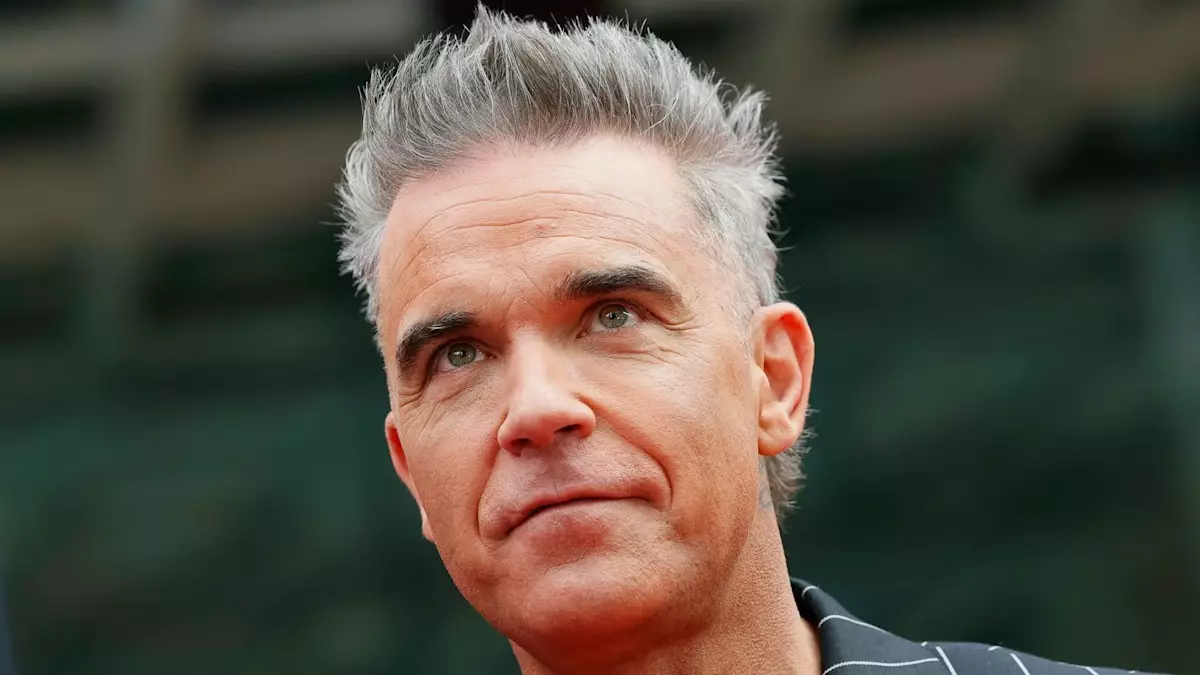In a recent Instagram revelation, Robbie Williams provided a raw and insightful perspective on the psychological toll of being part of a boy band. As a former member of Take That, Williams delved into the complexities of what he refers to as “boy band dysphoria,” a term that encapsulates the confusion and emotional struggle that many young performers face in the cutthroat music industry. His poignant statements were partially a response to claims made by his ex-manager in the docuseries “Boybands Forever,” which chronicles the trials and triumphs of iconic groups like Take That, Westlife, and Five. This open discourse shines a light on the darker elements of fame and the stigma surrounding mental health and addiction.
Robbie’s reflection is not only a personal catharsis but also an attempt to dismantle the mythologized narratives surrounding boy band members, who often appear to live charmed lives. As he expressed, the pressure to conform to specific ideals—whether they be physical, emotional, or behavioral—can lead to devastating consequences. Williams cited his struggles with drug addiction, framing it as a response to the “warped world” that enveloped him, rather than a reflection of external influences. This sentiment is critical; it suggests that the very environment created around successful artists can exacerbate their vulnerabilities, leaving them feeling isolated and trapped in a cycle of addiction and despair.
In his candid post, Robbie didn’t just focus on his struggles; he also acknowledged the difficulties faced by his former bandmates. By mentioning each of their battles, he painted a broader picture of the collective trauma experienced by boy band members. Mark Owen’s battle with alcoholism and Gary Barlow’s struggle with eating disorders amplified the notion that addiction and mental health issues do not discriminate. This camaraderie in shared pain illustrates how, despite their fame, these individuals are profoundly human, grappling with the very real ramifications of their past.
Williams highlighted a particularly poignant point about “gaslighting” in his response to his ex-manager’s accusations regarding his addiction. He emphasized the importance of acknowledging one’s lived experiences, stressing how ignoring an individual’s reality not only discredits their struggles but can also perpetuate feelings of shame. This crucial insight speaks to a wider social issue where vulnerability is often met with skepticism. Williams’ observations prompt a necessary conversation about the importance of validating each other’s experiences, especially in high-pressure environments like the entertainment industry.
Interestingly, Williams also touched on his personal journey toward recovery. His past admissions regarding his time in rehab and the effect of addiction on his relationships, particularly with his wife Ayda, resonate deeply in a world where mental health is still stigmatized. Their eventual reconciliation further underscores the notion that healing is a multifaceted process, involving not just self-reflection but also support from loved ones. The couple’s story serves as an inspiring reminder that it is possible to overcome adversity through love and understanding.
Robbie Williams’ revelations about his experience with “boy band dysphoria” offer a powerful reminder of the human condition, stripped of the glamour typically associated with celebrity life. By bringing attention to the psychological impacts of fame and the realities of addiction, he paves the way for greater openness and acceptance around mental health discussions. As he navigates his personal and professional journey, Williams stands as a testament to the importance of truth and vulnerability, encouraging others—inside and outside the limelight—to confront their struggles honestly and seek the help they need. The candid sharing of his experiences not only elevates his own narrative but also contributes to a collective understanding that allows for healing and growth within the larger community of performers.


Leave a Reply